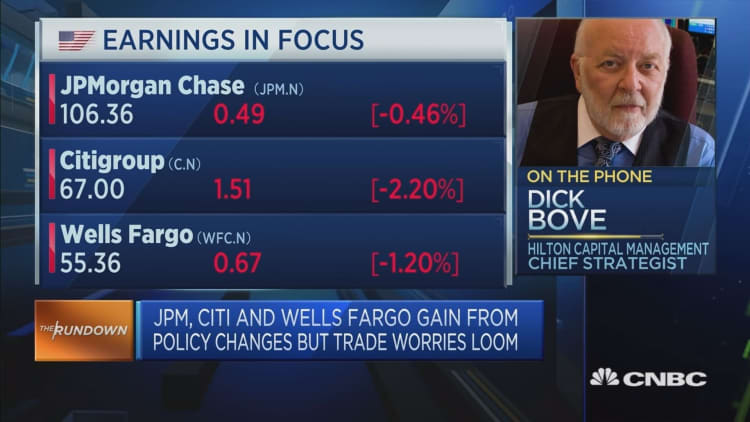
Bank stocks in the U.S. have been underperforming the broader markets this year — that’s set to continue unless those lenders start building up their capital again, said Dick Bove, Hilton Capital Management’s widely followed chief strategist.
The veteran bank analyst made those comments after three major American banks kicked off the sector’s earnings season on Friday with mixed results: J.P. Morgan Chase beat estimates, while Citigroup and Wells Fargo fell short of expectations.
But one thing in common across those three banks is that none has grown their capital by much from one year ago, according to Bove. Capital refers to the amount of assets a bank holds in excess of its liabilities. It's an indication of a bank's financial strength and its ability to withstand a crisis.
“If you don’t have capital in a capital-intensive industry, you’re telling the world you can’t grow. And I actually think that is the critical variable which is impacting these stocks more than anything,” he told CNBC’s “The Rundown” on Monday.
The banks have met U.S. regulator’s requirement to set aside capital to be “safe and sound,” the analyst explained. But they have chosen to use additional money that they have to increase dividend payouts and buy back shares instead of investing in growing their businesses, Bove added.
“If you have a dime of capital, that dime is invested somewhere and is giving you a return right now; if you get rid of that dime, you’re going to lose the return that you’re getting on that dime and you’re basically going to lower your secular growth rate,” he said.


